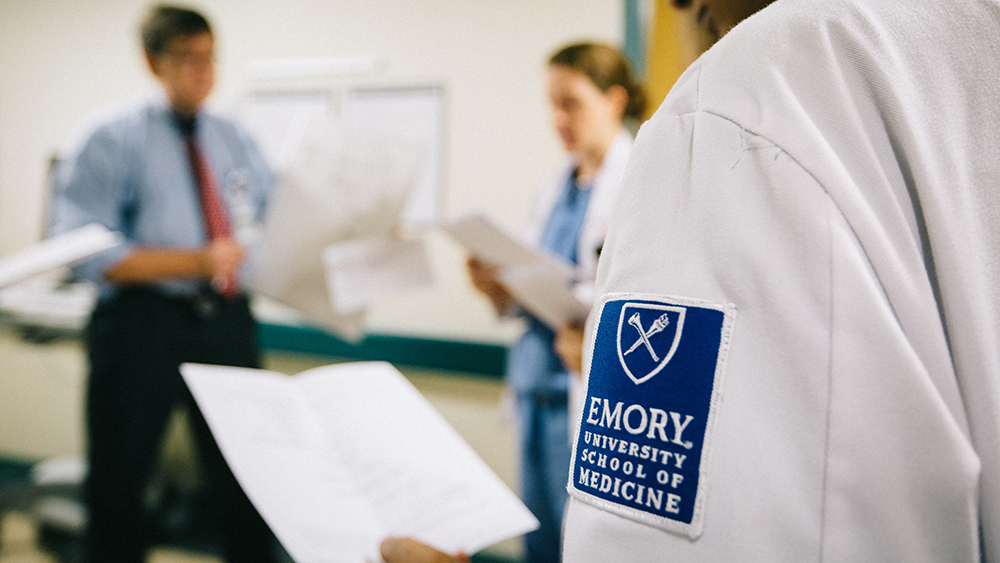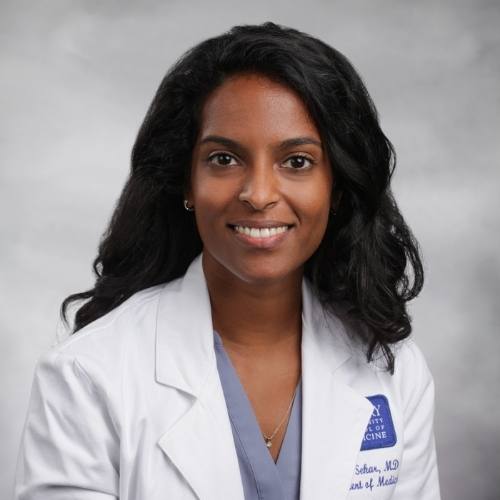The Distinction in Medical Education develops residents’ skills in teaching, assessment, and curriculum development to prepare them to be future clinician-educators regardless of their future career plans. This distinction program includes a combination of asynchronous self-directed learning activities, in-person group sessions, and practical teaching opportunities to develop residents’ knowledge and skills.
Program Objectives
After completing this program, residents should be able to:
- Select appropriate instructional strategies for a clinical or classroom teaching session based on their knowledge of medical education theory
- Analyze a learner’s performance in the clinical or classroom setting and provide them with behavioral feedback
- Develop, deliver, and iteratively improve an educational session using Kern’s six-step method of curriculum development.
- Describe their future plans for incorporating medical education into their careers and identify career development opportunities that they wish to pursue
Program Components
Residents interested in this distinction join formal coursework in July of their second year of residency. During this year, they have protected educational time to complete a curriculum introducing them to foundational concepts in learning theory, teaching, assessment, and curriculum development. During their third year, they have the opportunity to teach and mentor second-year residents in addition to practical teaching opportunities.
PGY-2 Curriculum
Residents complete an experiential curriculum that involves asynchronous preparation (e.g., readings, videos, podcasts, etc.) and experiential small group activities (e.g., discussion, observation and feedback, role play, etc.). Topics covered within the curriculum include:
- Setting expectations
- Learning climate and psychological safety
- Teaching and assessing clinical reasoning
- Delivering feedback
- Teaching in the clinical setting
- Large group teaching (e.g., lecture)
- Small group teaching (e.g., problem-based learning, team-based learning)
- Assessment in the clinical setting
- Assessment in the classroom setting
- Bias in assessment
- Science of learning and educational theory
- Curriculum development and evaluation
- Mentorship and coaching
- Medical education careers
Third-year residents have the option to develop and/or lead sessions within this curriculum.
Practical Teaching Experiences
All residents within the distinction program develop, lead, and receive feedback on the following teaching sessions during their residency:
- Chalk talks: Residents are required to have a faculty member provide formative feedback on at least 3 chalk talks during the course of their 2nd and 3rd year of residency.
- Noon conference: Residents are required to deliver a one-hour lecture or workshop on any topic to students, residents, and faculty members at noon conference during the resident’s PGY-3 year.
In addition, residents within the distinction are offered other optional formal teaching opportunities such as leading lectures or small group sessions within the internal medicine and adult primary care clerkships, observing and grading medical student observed structured clinical examinations (OSCEs), co-developing a residency core conference session, co-developing/co-leading elective courses within the medical school capstone course, bedside teaching, and mentoring students and residents.
Additional Opportunities
Residents interested in learning more about educational research and scholarship have the option to pursue an educational research curriculum during their elective months and complete a mentored medical education scholarly project.
Examples of some prior projects developed, implemented, and presented at local, regional, or national conferences and/or published in peer-reviewed journals:
- Galloway A*, Huang J, Spicer J, Fazal A, Klein R, Maleque N. We All Need Somebody: Designing a Near-Peer Mentoring Program to Improve Internal Medicine Residents’ Social Connectedness. Society of General Internal Medicine Annual Meeting, Virtual, 2021. (Poster).
- Galloway A*, Sekar D, Agrawal S, Vohra-Khulla P, Marshall B, Jones D, Arora A, Baker D. An Innovative Population Health and EMR Curriculum at a Large Academic Internal Medicine Residency Program. Society of General Internal Medicine Annual Meeting, 2024. (Poster).
- Agrawal S*, Spicer JO. Facilitating #FOAMed: Indexing Internal Medicine Podcasts to Promote Integration Into Medical Curricula. Society for General Internal Medicine Annual Meeting, virtual conference. April 21, 2021. (poster presentation)
- Enunwa C*, Obineme C, Hang TP, Ye C, Veeramachaneni H, Yu A, Hans A, Vachaparambil C, Patel V, Brown JM, Spicer JO. Visual Summaries of Gastroenterology Guidelines Increase Clinicians' Exposure to and Knowledge of Guideline-Based Clinical Care. American College of Gastroenterology Annual Meeting, Charlotte, NC. October 23, 2022. (poster presentation)
- Obineme C, Hang T, Yu A, Enunwa C, Veeramachaneni H, Patel V, Brown J, Spicer JO. Fellow-led infographic creation promotes engagement with gastroenterology guidelines. Medical Education, 2023 Feb 28. Doi: 10.1111/medu.15051. (Online ahead of print.)



